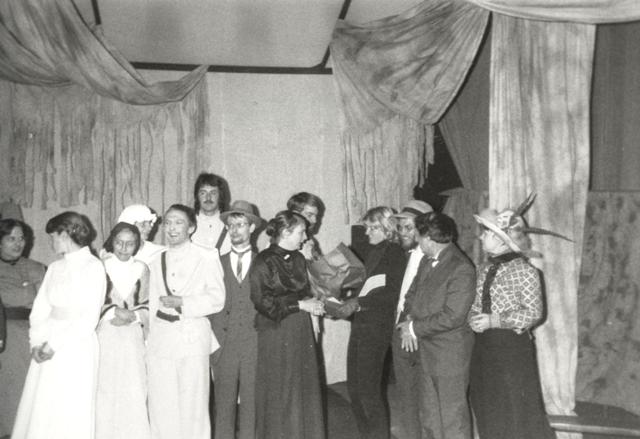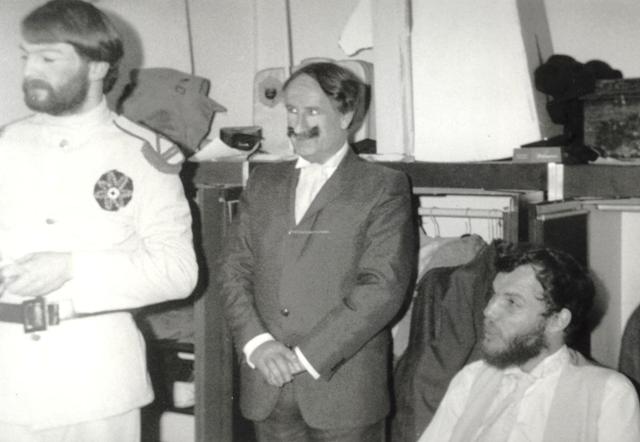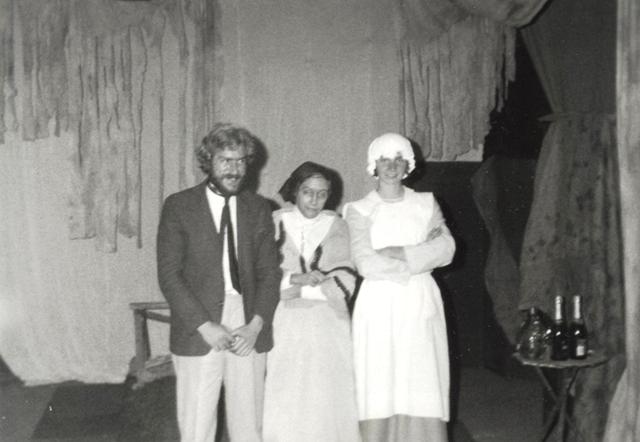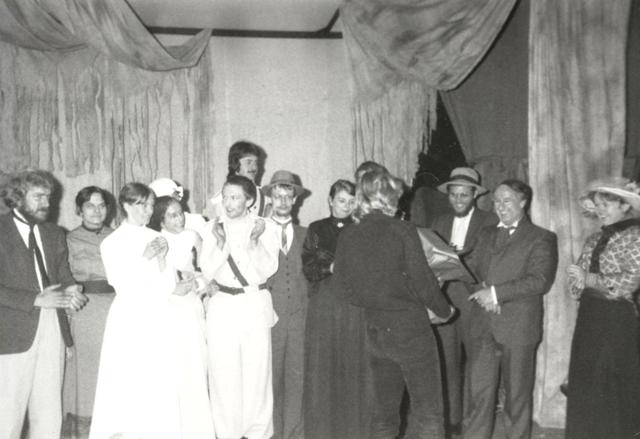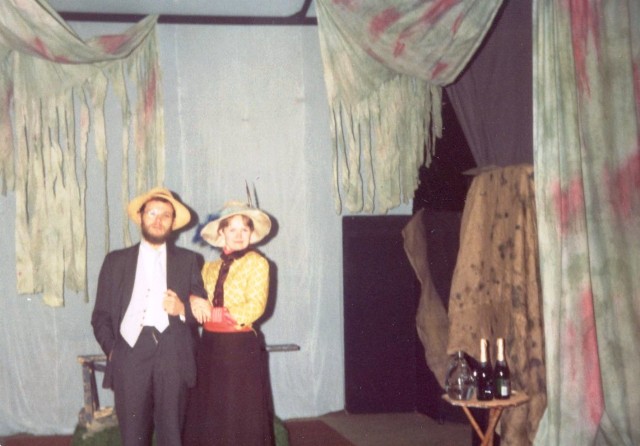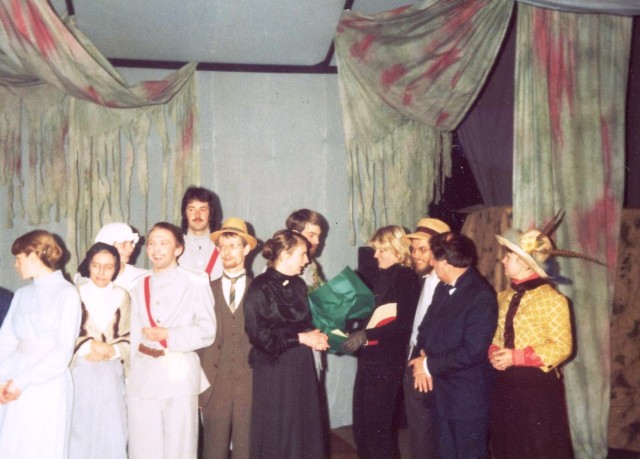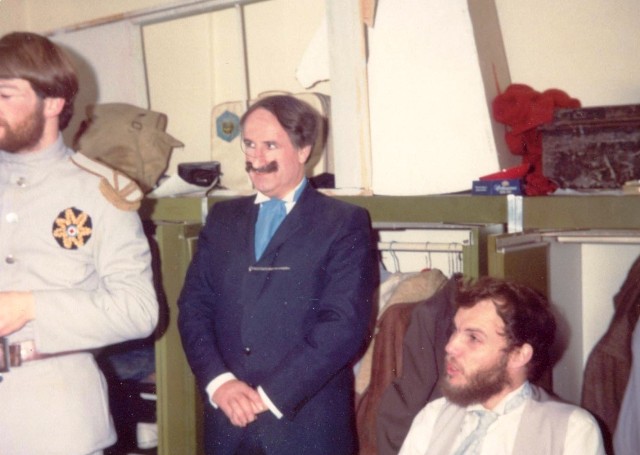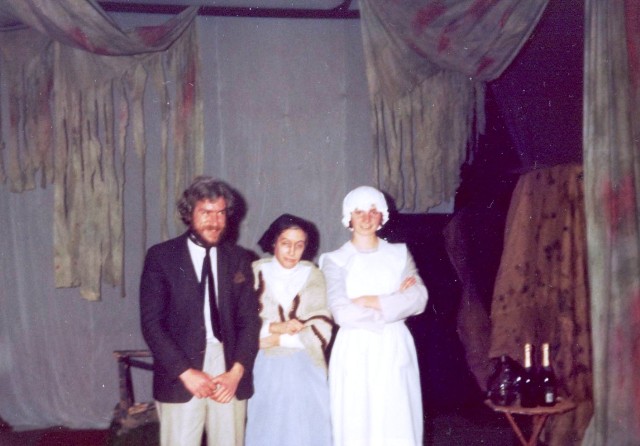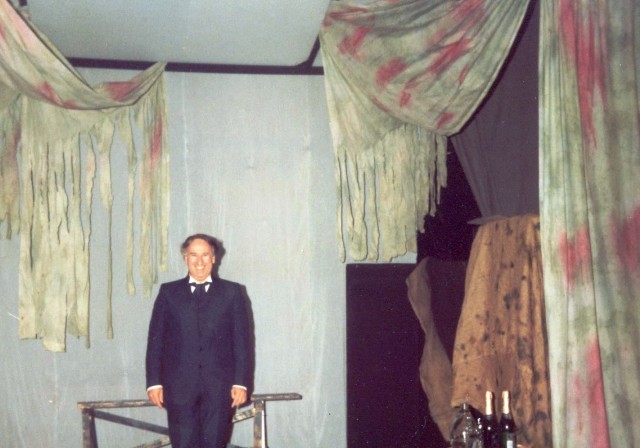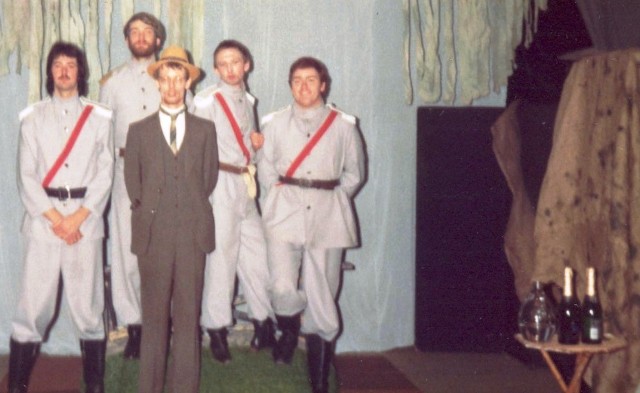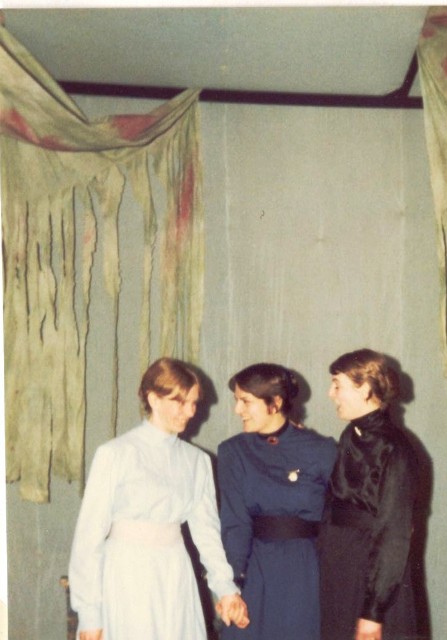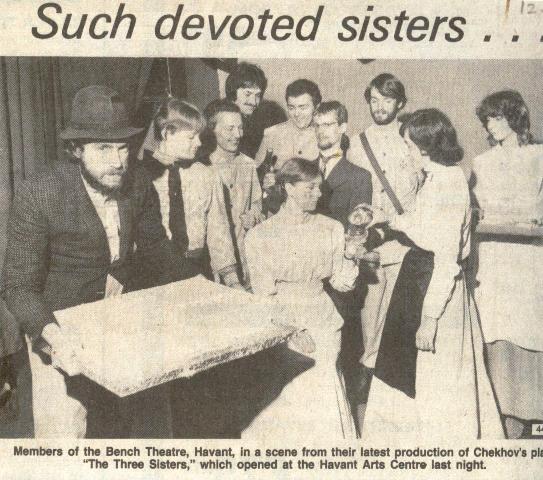The Bench Production
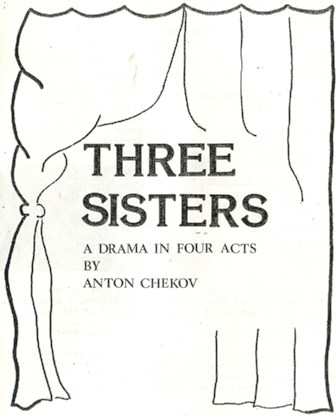
This play was staged at Havant Arts Centre, East Street Havant - Bench Theatre's home since 1977.
Characters
| Olga | Jacquie Penrose |
| Masha | Nicola Scadding |
| Irina | Jo German |
| Andrey | Roger Thurling |
| Lt Col Vershinin | Chris Hall |
| Capt Solyony | David Urquhart |
| Dr Chebutykin | Ray Osborne |
| Lt Baron Tuzenbakh | David Roberts |
| Second Lt Fedotik | Steve Jupp |
| Second Lt Rode | Brian Smith |
| Kulygin | Derek Cusdin |
| Ferapont | Keith Cobbold |
| Natasha | Ingrid Corrigan |
| Anfisa | Robbie Cattermole |
| Maid | Karen Cartwright |
Crew
| Director | John Scadding |
| Stage Manager | Sylvia Brierly |
| Assistant Stage Manager | Karen Cartwright |
| Lighting | Jon Philpott Anthony Elliott |
| Sound | Tony Czapp |
| Costumes | Robbie Cattermole Jacquie Penrose Mavis Parfitt |
| Poster Design | David Penrose |
| Programme Design | Nicola Scadding |
| Set Construction | Jim Charlton |
Director's Notes
Following on from the Bench's last production - 'Sister George' - we have yet another set of infuriating women. This time they are a bit more up market than those from the BBC but nevertheless they are just as self-centred and downright annoying and in need of a whack. They are stuck. They must change. Good plays seems to deal with this - the struggle to change or the struggle to resist change. The play this evening is full of men and women changing or not changing. The struggle is our play. We hope you enjoy it.
John Scadding
Reviews
The News G.S.
Bench wins struggle
Never having been a fan of Anton Chekhov, I approached the Bench Theatre's production of 'The Three Sisters' with limited enthusiasm. But last night's production at Havant Arts Centre kept the audience engrossed throughout. 'The Three Sisters' concerns the search for happiness in a Russian country town at the end of the last century. It is the story of a struggle. Will the three sisters and the characters who surround them ever find the happiness they are seeking? They search for it in love, in work, in every precious second of the day. But as soon as they believe it, they become disillusioned. Love, which flings itself at them, teases and torments, for it is always just out of reach. Hard work fails to satisfy them.
The audience soon realises, even if these infuriating, Russian characters do not, that they will never find the pleasure they seek in the world around them until they have found it in themselves. As the director (John Scadding) said: "The characters must change. the play is full of men and women changing or not changing. The struggle is our play". It would of course be spoil-sporting of me to say whether they win the fight. Will Lieutenant Colonel Veshinin realize that happiness is not reserved for a future generation? Will Kulgin the schoolmaster stop grovelling to his wife - and everyone else? Will the three sisters and their brother ever reach Moscow which represents their dream?
Ironically it is the least likely character of all who announces: 'I sometimes think I am the happiest woman in the world. The calibre of the acting can be describes as excellent in some cases. This applies to all three sisters (Jacquie Penrose, Nicola Scadding and Jo German) and to Dr Chebutykin (Ray Osborne), who gave an incredible performances as a drunk, bitterly depressed doctor during the third act. One criticism I would make was the way many appeared to stand or sit around just waiting for their cue in the earlier part of the play. A little more reaction would have added polish to a fine evening's entertainment.
The News, 4th December 1981
